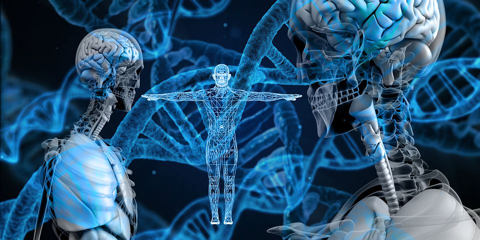I am currently writing a new subgenre of murder mystery, which I am calling the Biotech Murder Mystery, that includes a humorous and whimsical look at what might go wrong with biopharmaceutical development.
There are two major types of medicines, classical drugs and biopharmaceuticals (or biologics). Classical drugs consist of chemicals that result in pharmacological effects useful for treating illness. Drugs are generally produced through chemical synthesis, and common examples include aspirin and Nexium (esomeprazole).
More recently, medical biotechnology (biotech) appeared on the scene. This includes producing biopharmaceuticals as another form of medicine. These are biological molecules or cellular components, made of proteins and often derived from the human body. Examples of these include vaccines, blood and blood components, monoclonal antibodies, cell and gene therapies and cytokines. These are produced using microorganisms or plant or animal cells. These medicines are used to treat diseases such as arthritis, psoriasis, stroke, cancer, cystic fibrosis, AIDS and others. They usually act through the immune system.
The interesting thing about biopharmaceuticals is that they are often made using cutting edge genetic engineering, called recombinant DNA technology. The purpose is to produce purer, safer and more effective medicines. This author worked in the area of biopharmaceutical development since the 1990’s. It has been my experience that biopharma companies and the FDA work together to produce the safest products possible. It is not my intent, in writing a BIOTECH MURDER MYSTERY SERIES, to suggest otherwise.
Having said that, in retirement I have become a writer of fiction. Therefore, it is my plan in the Dr./Detective Jason Longfellow series, starting with PLEASURIA: Take as Directed, to take a humorous look at what could go wrong.
For example, the purpose for a vaccine is to cause the immune system to better battle and reject infections from the body. Is it possible that if you genetically modify a vaccine you could create a medicine that results in a patient who is immortal, rejecting all illness and effects of aging? Not likely, but fiction is not about what is, but what is in the imagination of the writer.
The purpose for a gene therapy is to trick the patient’s cells into producing a specific protein that will treat a given disease. For example, one might cause the body to once again produce insulin in a diabetic patient. However, is it also possible that this could go wrong? What if you accidentally tricked the patient’s cells into producing and releasing a pheromone that strongly attracts all feral cats in a five-mile radius? Or a protein that causes a patient to binge watch all the episodes of MURDER SHE WROTE over and over, forever. Is this likely? Not at all. But, it might make for an interesting story.
Cell therapies are designed to replace damaged or missing cells and organs of the body in certain disease states. For example, they can be used for rebuilding damaged cartilage, repairing spinal cord damage, and treating neurological disease. What if the cells, when injected into the body, got lost and formed a second brain somewhere else in the body besides the head? Or, perhaps the cells increased the person’s sense of smell 1000-fold, so they couldn’t stand to go outside, or to the bathroom? Or, what if the cells somehow resulted in the patient growing a third arm, on his back. This would be great for scratching and washing purposes. Is this likely? Not at all. But, again, there are endless possibilities for entertaining stories.
I spent 30+ years working in the drug and biopharmaceutical industry. I enjoyed my time there and the people that I met along the way. However, the work was often serious and stressful. In my retirement it’s time to have some fun.
Thank you for your tolerance, and for buying my books.
Kind regards,
Dr. John J. Jessop, Author, PLEASURIA, Guardian Angel: Unforgiven, Guardian Angel: Indoctrination


